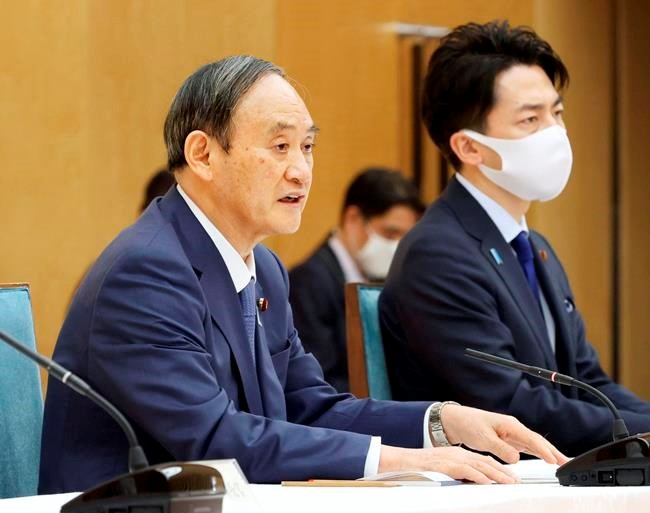TOKYO — Japan's prime minister announced on Thursday an ambitious new target for cutting greenhouse gas emissions, hours before he was to join a virtual climate summit hosted by U.S. President Joe Biden.
Prime Minister Yoshihide Suga said Japan will strive by 2030 to cut its emissions by 46% from 2013 levels, up from its earlier goal of 26%, to achieve carbon neutrality by 2050, a target he announced in October. He said Japan would further try to push the reduction as high as 50%.
“It will not be easy,” Suga said. “In order to achieve the target, we will firmly implement concrete measures, while aiming to create a positive cycle that links the economy and environment and achieve strong growth.”
Japan’s target of no net greenhouse gas emissions by 2050 brought it into line with the European Union, which last year set a goal of becoming carbon neutral by the same date. China in September pledged to be carbon neutral by 2060.
Japan, one of the world's biggest carbon emitters, has been under pressure from environmental groups and European countries to do more than its earlier 26% reduction target. Britain has pledged a 78% reduction by 2035.
Japan initially was to release its new 2030 target in time for the U.N. Climate Change Conference in November in Britain, and Thursday's announcement was apparently to show its commitment to taking an active role in the global effort as an important U.S. ally.
Experts say Japan is under pressure to play a greater role as part of a multilateral effort led by the United States in environment and climate issues, where China is also expanding its influence.
Suga, during a visit to Washington last week, agreed to
Progress toward reducing reliance on fossil fuels in Japan has been hindered by the prolonged closures of most of its nuclear plants after the Fukushima nuclear plant disaster in 2011.
Japan’s current energy plan, set in 2018, calls for 22-24% of its energy to come from renewables, 20-22% from nuclear power and 56% from fossil fuels such as oil, coal and gas.
Energy experts are discussing revisions to the plan for 2030 and 2050. The 2050 emissions-free target would require drastic changes and likely prompt calls for more nuclear plant restarts.
About 40% of Japan’s carbon emissions come from power companies, and they must use more renewable sources of energy while stepping up development of technologies using hydrogen, ammonia and other carbon-free resources, experts say.
Suga said he will maximize the use of renewables and other non-carbon power sources, provide support for local decarbonizing efforts and encourage investment.
Mari Yamaguchi, The Associated Press



